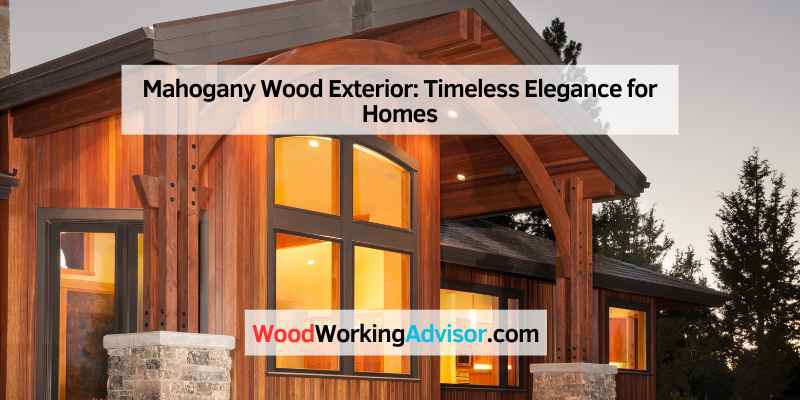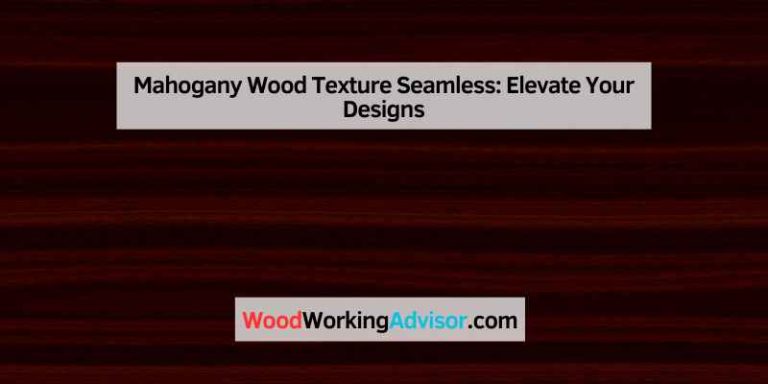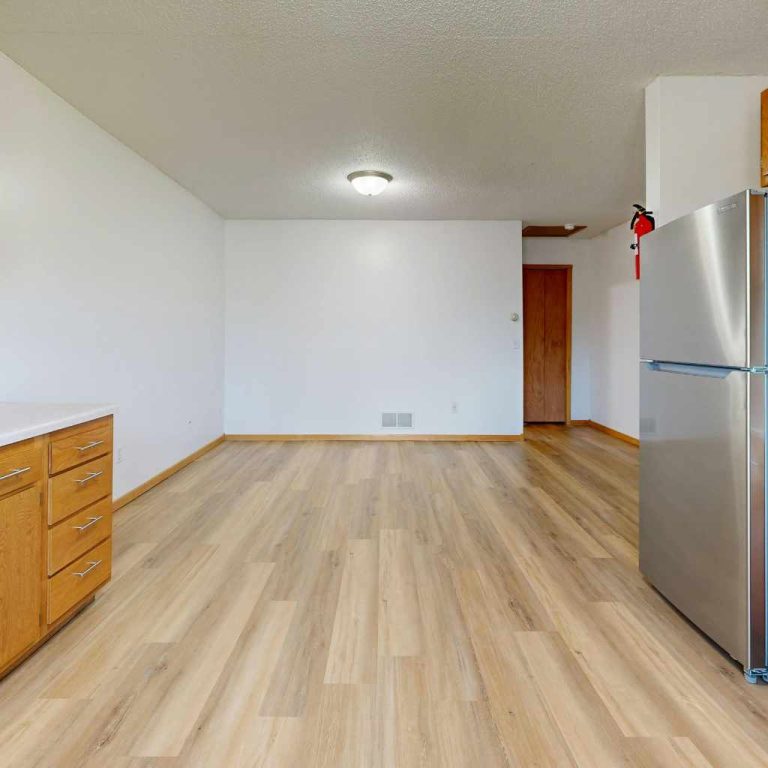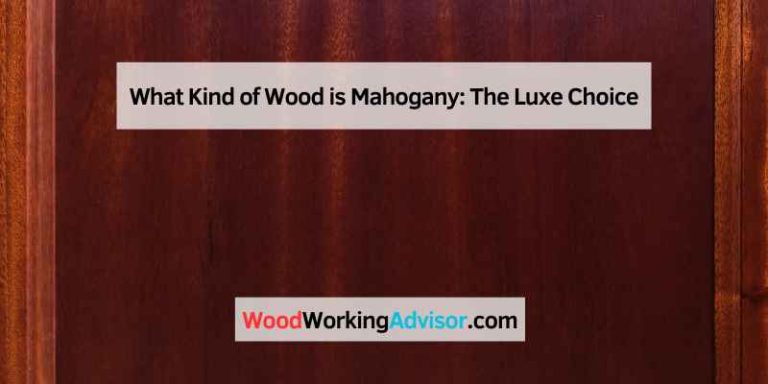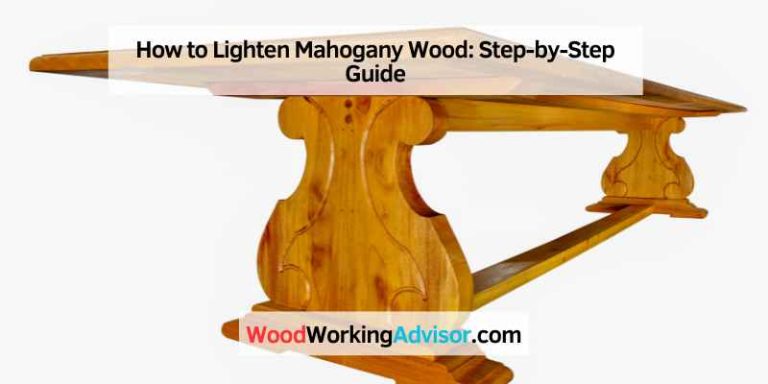Mahogany Wood Exterior: Timeless Elegance for Homes
Mahogany wood is a premium choice for exterior applications due to its durability and resistance to the elements. Its rich color and fine grain make it visually appealing for various outdoor uses.
Mahogany wood stands out as a top-tier option for outdoor projects. Known for its exceptional strength, it withstands harsh weather conditions effectively. Homeowners appreciate its natural resistance to decay and pests, ensuring longevity. The deep, warm hues of mahogany add elegance to any exterior, enhancing curb appeal.
This wood is also easy to work with, making it a favorite among builders and craftsmen. Whether for decking, siding, or furniture, mahogany offers both beauty and functionality. Investing in mahogany wood for your exterior projects guarantees a timeless look that can endure for years, making it a smart choice for any property owner.
The Allure Of Mahogany Wood
Mahogany wood captivates with its unique charm and beauty. It stands out in both traditional and modern designs. Its rich color and stunning grain make it a favorite for exterior use. Homeowners and builders love its style and strength.
Rich Color And Grain Texture
Mahogany wood boasts a deep, warm color. The shades range from reddish-brown to dark mahogany. This rich hue adds elegance to any exterior.
- Color Variations:
- Light Mahogany: Soft and inviting.
- Dark Mahogany: Bold and luxurious.
- Grain Patterns:
- Straight Grain: Classic and timeless.
- Interlocking Grain: Unique and eye-catching.
The grain texture enhances the wood’s appeal. Each piece of mahogany is unique. No two planks are alike. This individuality adds character to your home.
Durability Meets Beauty
Mahogany wood is not just beautiful; it is strong too. It withstands harsh weather conditions. This durability makes it ideal for outdoor use.
| Property | Mahogany Wood |
|---|---|
| Resistance to Rot | High |
| Resistance to Insects | Excellent |
| Longevity | Decades |
Choosing mahogany for your exterior means making a wise investment. Its beauty and strength ensure lasting value. Homeowners enjoy both aesthetics and performance.
- Benefits of Mahogany:
- Timeless appeal.
- Low maintenance.
- Eco-friendly options available.
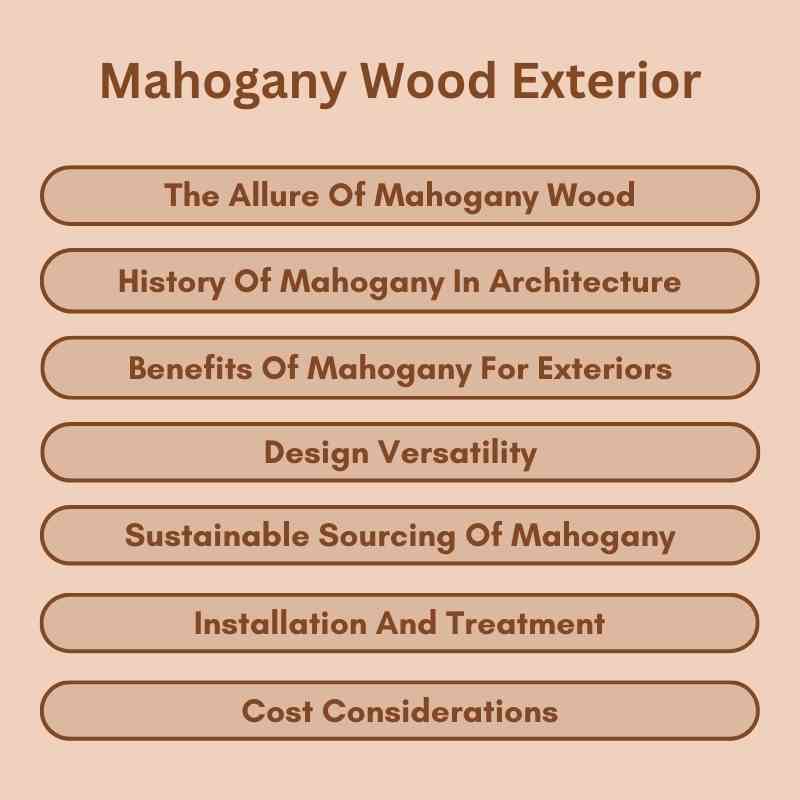
History Of Mahogany In Architecture
Mahogany wood has a rich history in architecture. Its strength and beauty made it a favorite choice. Architects and builders have used mahogany for centuries. This wood tells a story of luxury and durability.
From Ships To Shelters
Mahogany’s journey began in shipbuilding. It became popular in the 18th century. Its resistance to water made it ideal for boats. Craftsmen admired its fine grain and color.
Eventually, mahogany found its way into homes. Builders used it for doors, windows, and furniture. Its durability ensured long-lasting structures. Many historic buildings showcase this beautiful wood.
| Year | Use | Significance |
|---|---|---|
| 1700s | Shipbuilding | Water-resistant and strong |
| 1800s | Furniture | Luxury and elegance |
| 1900s | Architecture | Durability and beauty |
A Symbol Of Status
Mahogany wood represents wealth and sophistication. Many affluent families chose it for their homes. Its rich color and fine texture added elegance.
- Used in government buildings
- Found in luxurious hotels
- Common in high-end furniture
Mahogany remains a symbol of timeless beauty. Its presence in architecture speaks of history and prestige.
Benefits Of Mahogany For Exteriors
Mahogany wood is an excellent choice for outdoor projects. It offers unique advantages that enhance both beauty and durability. Understanding these benefits helps in making informed decisions.
Natural Resistance To Elements
Mahogany wood has remarkable properties that resist harsh weather. Its dense structure protects against moisture and pests.
- Water Resistance: Mahogany does not absorb water easily.
- Pest Resistance: Insects find it hard to penetrate.
- UV Protection: It withstands sun damage effectively.
This wood remains stable in fluctuating temperatures. It does not warp or crack easily. These features make it ideal for outdoor furniture, decks, and siding.
Longevity And Low Maintenance
Mahogany wood is known for its long lifespan. It can last for decades with minimal upkeep.
| Feature | Benefit |
|---|---|
| Durability | Resists wear and tear over time. |
| Low Maintenance | Requires less frequent sealing and staining. |
| Timeless Beauty | Retains rich color and luster. |
With occasional care, mahogany wood looks stunning for years. It is perfect for homeowners seeking a lasting investment.
Design Versatility
Mahogany wood offers remarkable design versatility for exteriors. Its rich tones and fine grain enhance various architectural styles. From classic homes to modern builds, mahogany adapts beautifully.
Classic And Modern Appeal
Mahogany wood stands out in both classic and modern designs. Its warm hues create a welcoming atmosphere. The elegant finish complements traditional architecture.
In modern homes, mahogany adds a touch of sophistication. Clean lines paired with mahogany create striking contrasts. Its timeless beauty ensures it never goes out of style.
Adaptable To Various Architectural Styles
Mahogany wood fits seamlessly into different architectural styles. Here’s how it adapts:
| Architectural Style | Mahogany’s Role |
|---|---|
| Colonial | Enhances traditional charm |
| Victorian | Adds intricate detailing |
| Contemporary | Provides sleek elegance |
| Rustic | Offers a natural, warm feel |
With its rich colors and smooth texture, mahogany enhances any design. It blends well with various materials like stone, glass, and metal. Homeowners appreciate its ability to elevate their exterior aesthetics.
- Classic appeal for timeless designs
- Modern elegance for contemporary looks
- Versatile for any architectural style
- Pairs well with other materials
Sustainable Sourcing Of Mahogany
Sourcing Mahogany wood sustainably is vital for our planet. It ensures the preservation of forests. Sustainable practices help maintain biodiversity and protect ecosystems.
Environmental Impact Concerns
Mahogany trees face several environmental threats. Overharvesting is a significant issue. This practice leads to deforestation and loss of habitat.
- Deforestation: Reduces carbon storage and increases CO2 levels.
- Biodiversity loss: Many species depend on these forests.
- Soil erosion: Without trees, soil becomes unstable.
Choosing responsibly sourced Mahogany can reduce these impacts. It supports forest conservation and protects wildlife.
Certified Sustainable Options
Several certifications ensure Mahogany wood is sourced sustainably. These certifications promote responsible forestry practices.
| Certification | Description |
|---|---|
| FSC (Forest Stewardship Council) | Ensures responsible forest management. |
| PEFC (Programme for the Endorsement of Forest Certification) | Promotes sustainable forest practices globally. |
| Rainforest Alliance | Focuses on biodiversity and sustainable livelihoods. |
Always look for these certifications. They guarantee that your Mahogany wood is eco-friendly. Supporting these initiatives helps protect forests for future generations.
Installation And Treatment
Mahogany wood is durable and beautiful. Proper installation and treatment ensure its longevity. Follow best practices to achieve the best results.
Best Practices For Installation
Installing mahogany wood requires careful planning. Here are some best practices:
- Measure Twice: Always double-check your measurements.
- Use Quality Tools: A saw, level, and drill are essential.
- Acclimate Wood: Let mahogany adjust to humidity.
- Follow Manufacturer Instructions: Each product may have specific guidelines.
- Secure Properly: Use screws or nails designed for hardwood.
Protective Treatments For Longevity
Treating mahogany wood extends its life. Use these protective treatments:
| Treatment | Purpose | Frequency |
|---|---|---|
| Sealant | Prevents moisture damage | Every 1-2 years |
| Stain | Adds color and UV protection | Every 3-5 years |
| Oil Finish | Enhances natural beauty | Every 6-12 months |
Choose the right treatment for your project. Regular maintenance keeps mahogany looking its best.
Cost Considerations
Understanding the cost of Mahogany wood for your exterior is essential. This beautiful material offers numerous benefits but comes with a price. Evaluating both initial costs and long-term value helps in making a wise choice.
Initial Investment Vs. Long-term Value
The initial investment for Mahogany wood can be higher than other materials. However, it delivers significant long-term benefits.
- Durability: Mahogany resists rot and insects.
- Maintenance: Requires less upkeep over time.
- Aesthetic Appeal: Retains beauty, enhancing property value.
Here’s a simple breakdown of costs:
| Factor | Initial Cost | Long-Term Cost |
|---|---|---|
| Mahogany Wood | $8-$15 per board foot | Low maintenance costs |
| Pine Wood | $2-$5 per board foot | Higher maintenance costs |
| Vinyl Siding | $3-$7 per square foot | Moderate maintenance costs |
Comparing To Alternative Materials
Many materials compete with Mahogany wood. Here’s how they stack up:
- Pine: Cheaper but less durable and requires more maintenance.
- Cedar: Offers good resistance but can warp over time.
- Vinyl: Affordable but lacks the natural beauty of wood.
Investing in Mahogany provides a balance between cost and value. It may cost more upfront but saves money in the long run.
Maintenance And Care
Maintaining the beauty of Mahogany wood exteriors is essential. Proper care ensures longevity and durability. Regular attention keeps the wood looking new and vibrant.
Routine Cleaning Tips
Keep your Mahogany wood exterior clean to prevent damage. Follow these simple cleaning tips:
- Use a soft cloth or sponge.
- Mix mild soap with warm water.
- Wipe down the surface gently.
- Rinse with clean water.
- Dry thoroughly with a clean cloth.
Perform this cleaning routine every month. This helps maintain the natural shine of the wood.
Dealing With Wear And Tear
Wear and tear may occur over time. Address issues promptly to avoid bigger problems. Here’s how to manage common issues:
| Issue | Solution |
|---|---|
| Scratches | Use a wood filler to repair. |
| Fading | Apply a UV-protective sealant. |
| Water stains | Rub with a mixture of vinegar and olive oil. |
Inspect your Mahogany wood regularly. Early detection helps prevent extensive damage.
Real-world Examples
Mahogany wood is not just beautiful. It is also durable and versatile. Many iconic buildings and homeowners showcase its elegance and strength.
Iconic Buildings Using Mahogany
Several famous structures feature mahogany wood in their designs. Here are some remarkable examples:
| Building Name | Location | Year Built | Notable Feature |
|---|---|---|---|
| National Gallery of Art | Washington, D.C. | 1937 | Mahogany paneling in the West Building |
| The White House | Washington, D.C. | 1800 | Mahogany doors and furniture |
| Old North Church | Boston, MA | 1723 | Mahogany pews and altar |
Homeowners’ Experience With Mahogany
Many homeowners prefer mahogany for their exterior projects. They appreciate its beauty and longevity. Here are some common experiences:
- Rich Color: Homeowners love its warm, reddish-brown hue.
- Weather Resistance: Mahogany withstands harsh weather conditions.
- Low Maintenance: It requires less upkeep compared to other woods.
- Timeless Appeal: It adds a classic look to homes.
Many users share their positive experiences online:
- “My mahogany deck looks stunning year-round.”
- “I love how easy it is to maintain.”
- “It brings warmth to my outdoor space.”
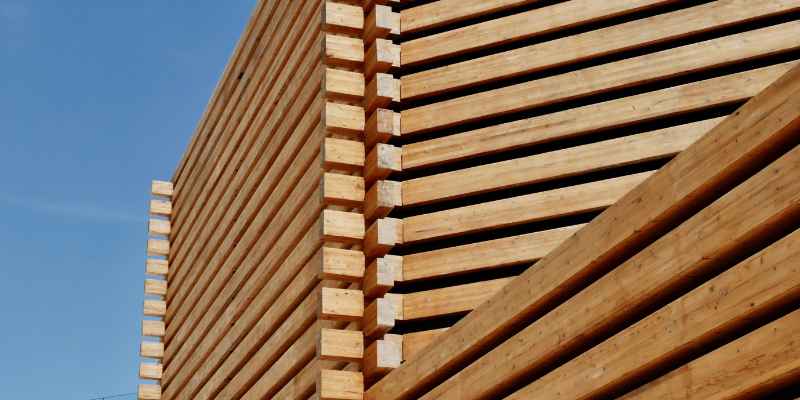
Frequently Asked Questions
What Are The Benefits Of Mahogany Wood For Exteriors?
Mahogany wood is highly durable, making it ideal for outdoor use. Its natural resistance to moisture and insects ensures longevity. Additionally, its rich color and fine grain enhance the aesthetic appeal of any exterior. Mahogany also requires minimal maintenance, making it a practical choice for homeowners.
How Does Mahogany Wood Withstand Weather Conditions?
Mahogany wood excels in various weather conditions due to its dense grain. It resists warping, cracking, and fading, even in harsh climates. Its natural oils provide additional protection against rain and sun exposure. This resilience makes it a preferred choice for decks, siding, and outdoor furniture.
Is Mahogany Wood Environmentally Friendly?
Mahogany wood can be considered sustainable when sourced responsibly. Look for certifications from organizations like the Forest Stewardship Council (FSC). Choosing reclaimed or salvaged Mahogany also reduces environmental impact. Always verify suppliers to ensure you’re making an eco-conscious choice without compromising quality.
How Do I Maintain Mahogany Wood Exteriors?
Maintaining Mahogany wood is straightforward and requires minimal effort. Regular cleaning with mild soap and water helps prevent buildup. Applying a protective sealant every few years enhances its longevity. Avoid harsh chemicals and opt for natural oils to preserve its rich color and texture.
Conclusion
Choosing mahogany wood for your exterior projects offers unmatched beauty and durability. Its rich color and fine grain elevate any design. With proper care, mahogany will withstand the elements while maintaining its elegance. Invest in this timeless material to enhance your home’s appeal and value for years to come.

